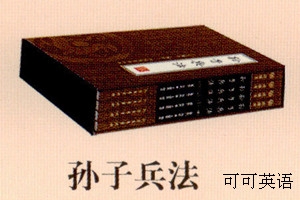虛實篇 NO.1:
孫子曰:凡先處戰地而待敵者佚,后處戰地而趨戰者勞。
故善戰者,致人而不致于人。
能使敵人自至者,利之也;能使敵人不得至者,害之也。
故敵佚能勞之,飽能饑之,安能動之。
這句啥意思:
孫子說,大凡先期到達戰地等待敵軍的就精力充沛、主動安逸,而后到達戰地匆忙投入戰斗的就被動勞累。
所以,善戰者調動敵人而決不為敵人所調動。
能夠調動敵人使之自動前來我預想的戰地,是用利益來引誘;能使敵人不能先我來到戰場,是設置障礙、多方阻撓的結果。
所以,敵人若處軍安逸,能使之疲勞;若敵人糧食充足就能使之匱乏;若敵人安然不動,就能使他不得不行動起來。
英文這么說:
Sun Tzu said: Whoever is first in the field and awaits the coming of the enemy, will be fresh for the fight;whoever is second in the field and has to hasten to battle will arrive exhausted.
Therefore the clever combatant imposes his will on the enemy, but does not allow the enemy's will to be imposed on him.
By holding out advantages to him, he can cause the enemy to approach of his own accord; or, by inflicting damage,he can make it impossible for the enemy to draw near.
If the enemy is taking his ease, he can harass him;if well supplied with food, he can starve him out;if quietly encamped, he can force him to move.

《虛實篇》











